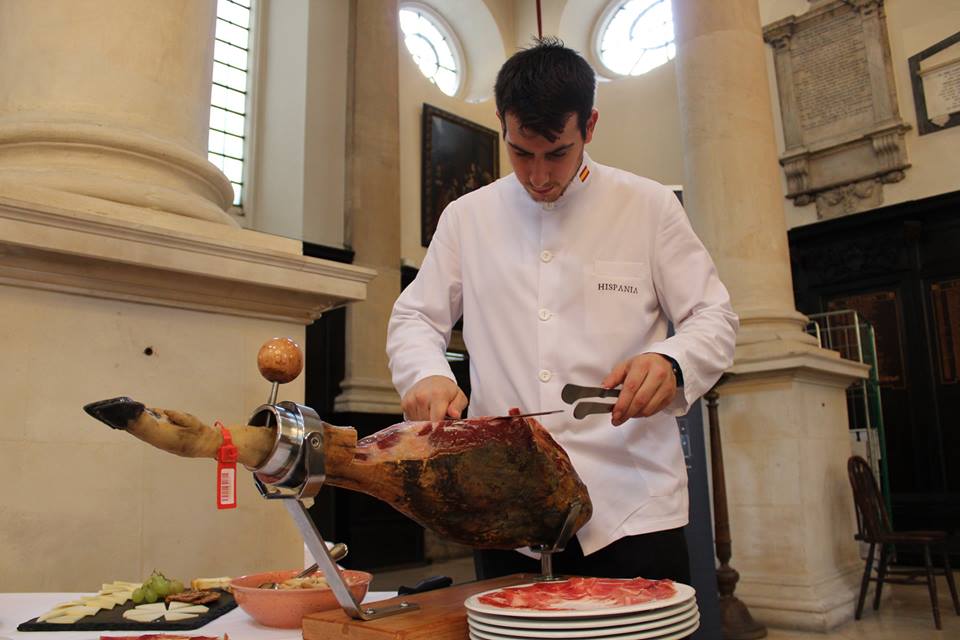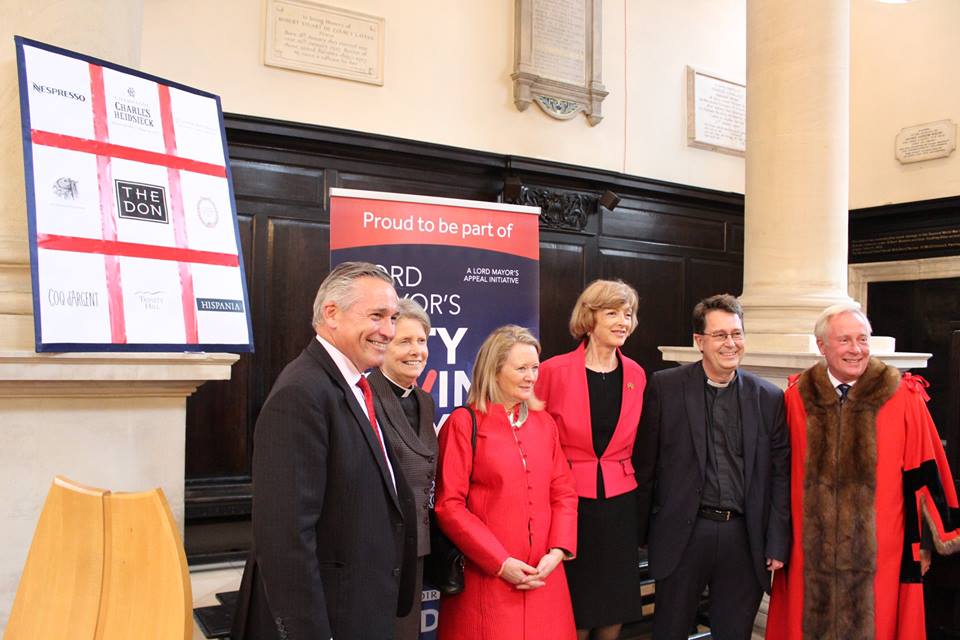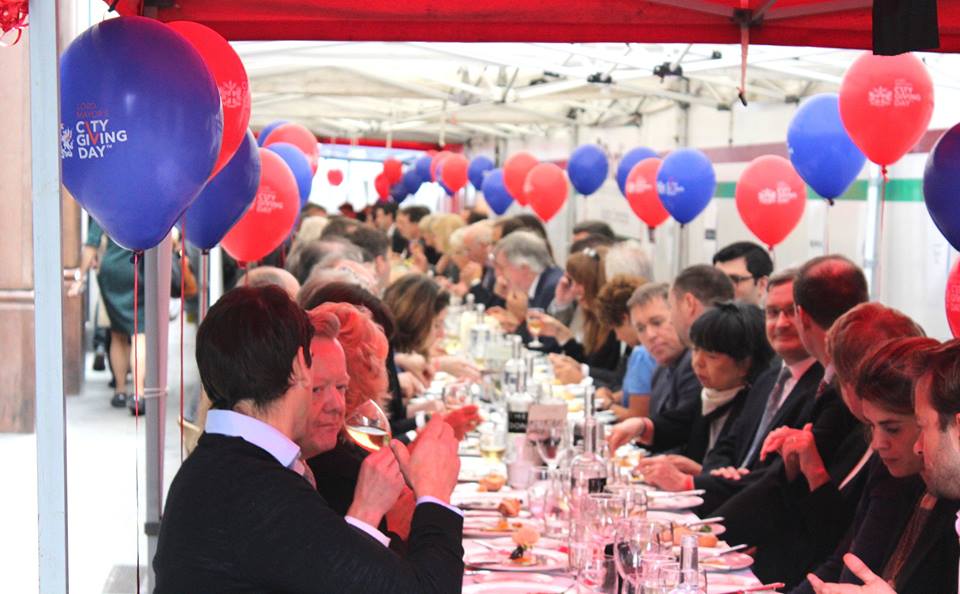Justin Welby once welcomed an Evening Standard campaign on tackling food poverty and waste by saying that as “hunger is a complex, widespread and shocking blight on our country … more needs to be done to highlight this issue.”
In commenting on this statement, the paper noted that the Archbishop had good scriptural reasons to join the Food for London campaign. They noted that after ‘feeding the five thousand, Christ instructed the waste to be gathered up afterwards’ and said that it was in that spirit that the Archbishop had supported this campaign.
It was positive to see a major newspaper quoting scripture and doing so with some understanding. This contemporary reminder of the feeding of the five thousand and the 12 baskets of fragments that were gathered up afterwards gives us one way of reflecting on Jesus’ words in today’s Gospel reading (John 6. 37 – 40) that it ‘is the will of him who sent me, that I should lose nothing of all that he has given me, but raise it up on the last day.’
These words come in the middle of Jesus’ teaching about being the Bread of Life which followed shortly after the feeding of the 5,000. When Jesus gave thanks over the bread, the word used is ‘eucharistesas’, the word which gives us ‘Eucharist’. Jesus shares the bread around in communion, then, when everyone is satisfied, he instructs his disciples to pick up the fragments using that same phrase, ‘so that nothing may be lost.’ Just as none of this ‘eucharisticized’ bread was lost after the feeding, so, because ‘Jesus is the bread of life, [those who] see and believe in him … receive eternal life [and] become a fragment which he will gather up on the last day.’ (John, Richard Burridge, BRF 1998)
This is the reason why Christ came, which he reveals both here and in the parables he told about the lost sheep and coin. The shepherd and woman in those two stories are exactly the same; because of their concern for the sheep and coin which are lost, they will not give up searching until these have been found. The sheep and the coin are loved and this love is revealed or proved through the search.
The point of those parables is for us to know that we and all souls are similarly loved by God because he also searches for us until we are found. This search is the story of the Gospels:
‘Christ Jesus, who, though he was in the form of God,
did not regard equality with God as something to be exploited,
but emptied himself, taking the form of a slave,
being born in human likeness.
And being found in human form,
he humbled himself and became obedient to the point of death
— even death on a cross.’ (Philippians 2. 6 – 8)
Christ went on that search to seek and save those who are lost and thereby to ensure that none shall be lost and all souls shall be safely gathered in.
How much are we loved by God? So much that his Son left all he had in heaven to become a human being and die to rescue us for God. Jesus, the Good Shepherd, searches for all souls with God’s attentive love, looking and listening, finding and carrying; carrying us home, like a sheep on the shoulders, from the cliff edges of our lives.
The lost almost universally consider themselves worthless but these parables and this story specifically deny that assumption. What is lost is actually the most precious thing or person of all; the person or thing for which everything else will be given up or set aside. What is lost and found is us. We are the ones for whom Christ searches at the expense of all that he has, including, in the end, his own life. We are the most precious lost person for whom he searches. We are precious, we are loved.
We live in the light of this love and as his love resulted in his giving himself to us and for us, so our response to him should be the same. Stewardship month is an annual reminder to us that that is so when it comes to the contribution we make as Christian disciples; when it comes to the money we give back to God, the talents we use in his service, the community contribution we make and the environmentally-friendly actions we take.
‘God has given you unique abilities, talents, and gifts … If you think your talents are simply for you to make a lot of money, retire, and die, you’ve missed the point of your life. God gave you talents to benefit others, not yourself. And God gave other people talents that benefit you … We’re all a part of the body of Christ, and each part matters. There are no insignificant people in the family of God. You are shaped to serve God, and he is testing you to see how you are going to use the talents he gave you. Whether you are a musician or an accountant, a teacher or a cook, God gave you those abilities to serve others … You are a manager of the gifts God has given to you.’
Ministry belongs to the whole people of God. Every person, because of their baptism, has a ministry. Each of us has special qualities, skills and talents. How could your talents and gifts be used more fully for the work of God through St Andrew’s? Each of us has time, talents and treasure which could be given out of gratitude and to help this church. Will you help in some way? Can you use your gifts to share in God’s plan for his kingdom and for the work of ministry here at St Andrew’s?
Could you offer your time and talents for tasks such as Administering Communion, Contemplative Commuters, Campaigning on issues, Children’s work, MU Committee, Choir member, Musician, DCC member, Odd jobs, Committee member, Painting & decorating, Church officer, PCC member, Cleaning, Toddler Group helper, Coffee Morning helper, Prayer for others, Reading the Bible in church, Sidesperson, among other tasks? I encourage you to reflect on how you use your gifts and talents currently and whether you could give us of your talents in new ways out of gratitude to God and to help this church.
We do so because we are the most precious lost person for whom he searches. We are precious, we are loved. We live in the light of this love and, as his love resulted in his giving himself to us and for us, so our response to him should be the same. Amen.
------------------------------------------------------------------------------------------------------
Moby featuring Gregory Porter - In My Heart.











